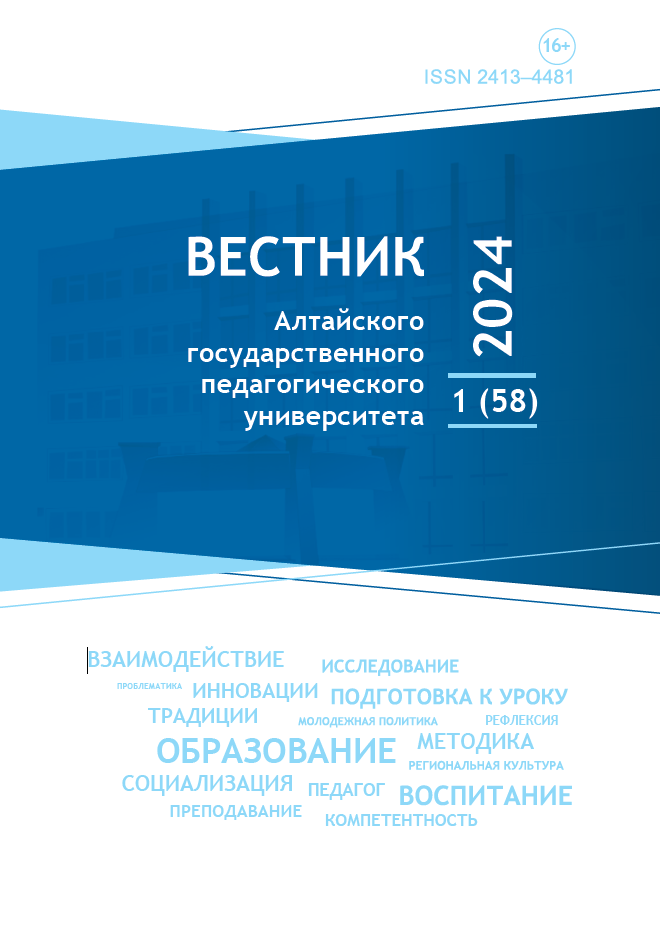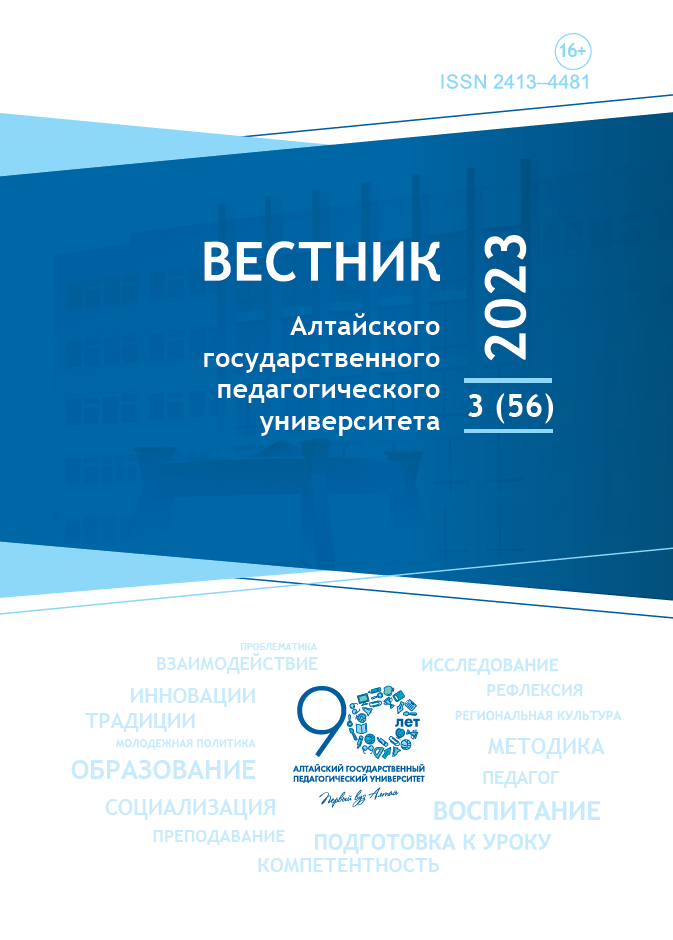TEACHING COMPUTER MODELING TO INFORMATION TECHNOLOGY STUDENTS: A PRACTICE-ORIENTED APPROACH
DOI:
https://doi.org/10.37386/2413-4481-2024-1-11-19Keywords:
computer modeling training, practice-oriented approach, modeling competence, structural model, information technology profileAbstract
A structural model of modeling competence in information technology education is presented, which includes three main elements: subject-specific knowledge; meta-knowledge about models and simulation and modeling practice. The structural model of modeling competence develops the theory and methodology of teaching modeling to schoolchildren. A survey of experts was conducted, which showed high perceived usefulness, ease of use, and behavioral intention to use the proposed modeling competency model for information technology classes.References
Примерная основная образовательная программа основного общего образования. Одобрена решением Федерального учебно-методического объединения по общему образованию, протокол 6/22 от 15.09.2022 г. M.: Институт стратегии развития образования РАО, 2022. 1418 с.
Чевычелов С. А., Коржавина Е. Г. Основы моделирования в КОМПАС-3D для школьников: учеб. пособие / под общ. ред. С. А. Чевычелова. Курск: Университетская книга, 2021. 60 с.
Сафонова О. И. Начальное техническое конструирование и моделирование на уроках технологии в V классе // Школа и производство. 2022. № 1. С. 21-23.
Головкина В. Б., Рязанова В. Р. О разработке электронного учебника для освоения школьниками САПР «КОМПАС-3D» В «Инженерном классе» // Современное образование: содержание, технологии, качество. 2018. Т. 2. С. 121-124.
Файзрахманова А. Л., Файзрахманов И. М. Особенности учебного моделирования на уроках технологии // NovaUm.Ru. 2019. № 17. С. 365-367.
Сенцов М. Н. Управление формированием метапредметных компетенций учащихся посредством проектной деятельности в ходе изучения 3D-моделирования на уроках технологии // Молодой ученый. 2021. № 22 (364). С. 481-483.
Зайцева Е. Ю., Иванова О. А. Формирование технологической грамотности у обучающихся средствами моделирования // Мир науки, культуры, образования. 2020. № 3 (82). С. 207-210.
Citrohn B., Stolpe K., Svensson M., Bernard J. Affordances of models and modelling: a study of four technology design projects in the Swedish secondary school // Design and Technology Education. 2022. 27 (3). P. 58-75.
Schwarz C. V. Developing a learning progression for scientific modeling: Making scientific modeling accessible and meaningful for learners // Journal of Research in Science Teaching. 2009. 46 (6). P. 632-654.
Hallströml J., Schönborn K. J. Models and modelling for authentic STEM education: reinforcing the argument // International Journal of STEM Education. 2019. Vol. 6. Article number: 22.
De Vries M. J. Modeling in technology and engineering education. In P. J.Williams & D. Gedera (Eds.), PATT 27, Technology Education for the Future: A Play on Sustainability, Christchurch, New Zealand, 2-6 December 2013. Waikato: University of Waikato.
Boon M., Knuuttila T. Models as epistemic tools in engineering sciences // Philosophy of technology and engineering sciences. 2009. P. 693-726. URL: http://dx.doi.org/10.1016/B978-0-444-51667-1.50030-6 (mode of access: 15.12.2023).
Nicolaou Chr. Th., Constantinou C. P. Assessment of the modeling competence: A systematic review and synthesis of empirical research // Educational Research Review. 2014. Vol. 13. P. 52-73.
Maaß K. What are modelling competencies? // Zentralblatt für Didaktik der Mathematik. 2006. Vol. 38. P. 113-142.
Nielsen S. S., Nielsen J. A. A competence-oriented approach to models and modelling in lower secondary science education: practices and rationales among Danish teachers // Research in Science Education. 2021. 51 (2). P. 565-593.
Evagorou M., Nicolaou Ch., Lymbouridou Ch. Modelling and Argumentation with Elementary School Students // Canadian Journal of Science, Mathematics and Technology Education. 2020. Vol. 20 (5). P. 58-73.
Nia M. G., de Vries M. J. ‘Standards’ on the bench: Do standards for technological literacy render an adequate image of technology? // Journal of Technology and Science Education (JOTSE). 2016. Vol. 6 (1). P. 5-18.
Nielsen S. S., Nielsen J. A. Models and Modelling: Science Teachers’ Perceived Practice and Rationales in Lower Secondary School in the Context of a Revised Competence-Oriented Curriculum // EURASIA Journal of Mathematics, Science and Technology Education. 2021. Vol. 17 (4). em1954.
Using a validation model to measure the agility of software development in a large software development organization / M. Ikoma, M. Ooshima, T. Tanida, M. Oba, S. Sakai // In Proceedings of the 31st International Conference on Software Engineering-Companion Volume, Vancouver, BC, Canada, 2009. P. 91-100.
IEEE Standard for System and Software Verification and Validation. IEEE Std 1012-2012 (Revision of IEEE Std 1012-2004). 2012. 25 May. P. 1-223.
McLeod S.A. Likert Scale Definition, Examples and Analysis. Simply Psychology. URL: https://www.simplypsychology.org/likert-scale.html (mode of access: 15.12.2023).
Lazar Iu., Panisoara G., Panisoara Ion-O. Adoption of digital storytelling tool in natural sciences and technology education by pre-service teachers using the technology acceptance model // Journal of Baltic Science Education. 2020. Vol. 19, No. 3. P. 429-453.
Hoekstra R., Vugteveen J., Warrens M. J., Kruyen P. M. An empirical analysis of alleged misunderstandings of coefficient alpha // International Journal of Social Research Methodology. 2018. Vol. 22 (4). P. 1-14.
Downloads
Published
Issue
Section
License
Для публикации статьи в журнале «Вестник Алтайского государственного педагогического университета» автору необходимо заключить лицензионный договор с федеральным государственным бюджетным образовательным учреждением высшего образования «Алтайский государственный педагогический университет» (ФГБОУ ВО «АлтГПУ»).



